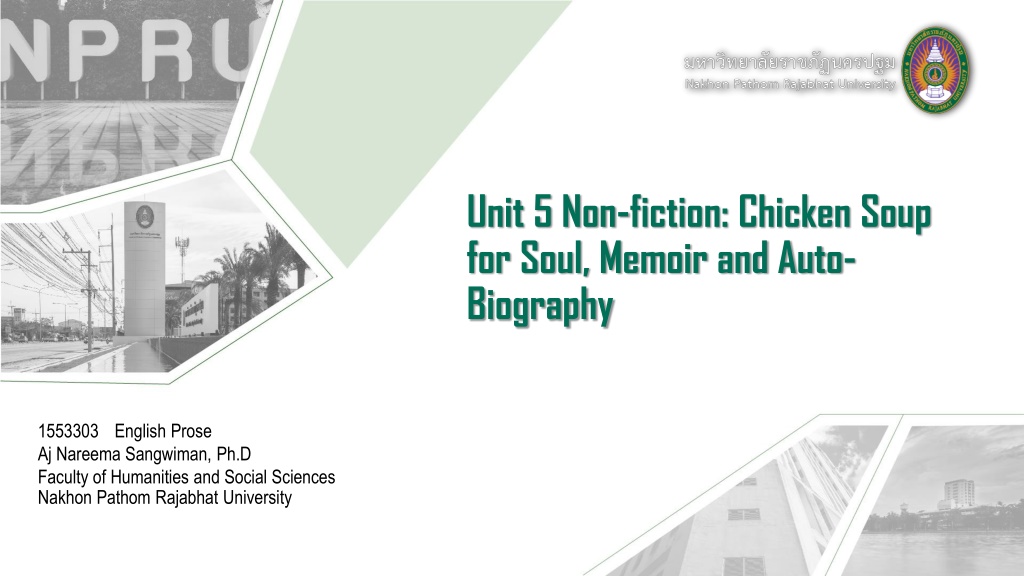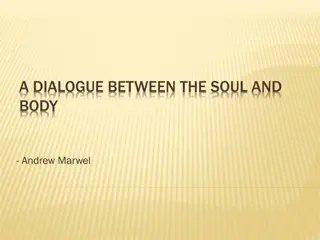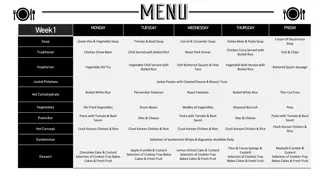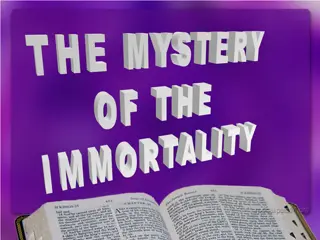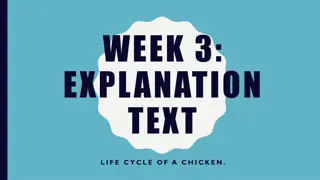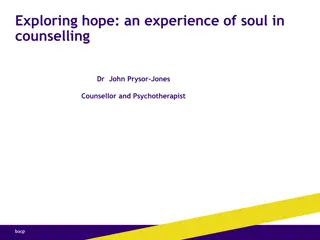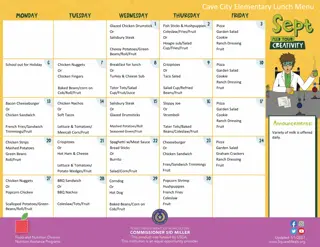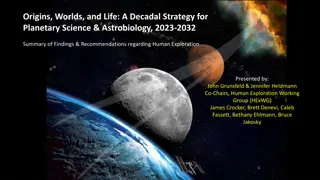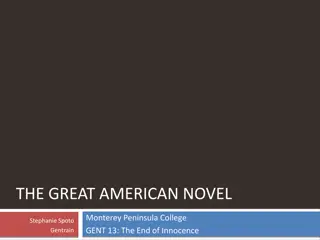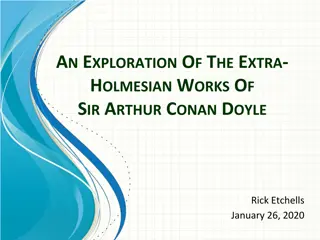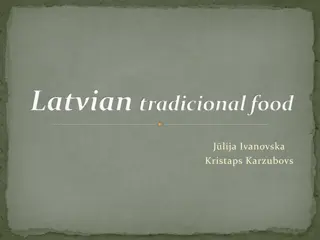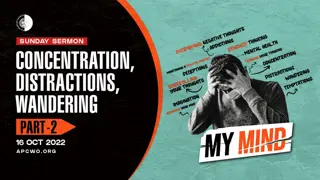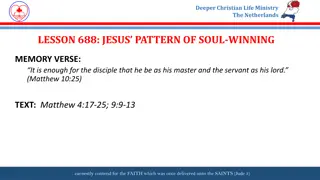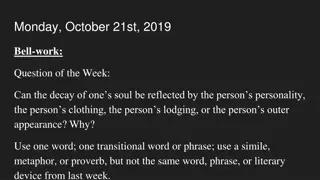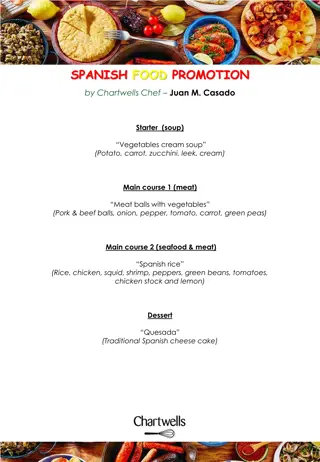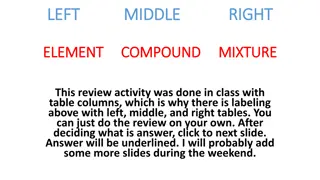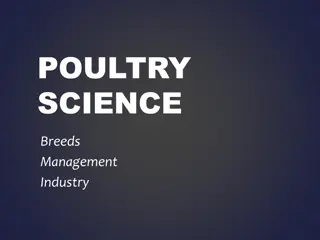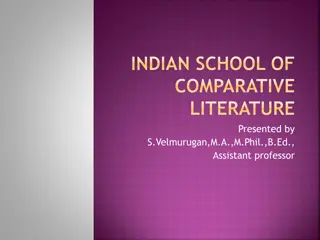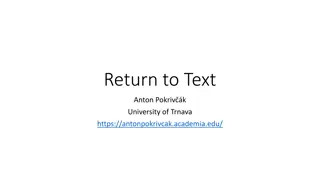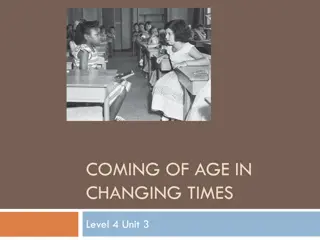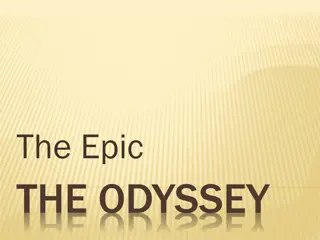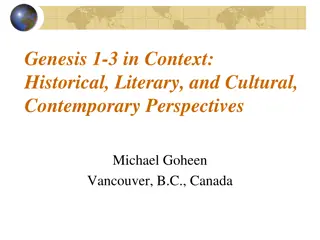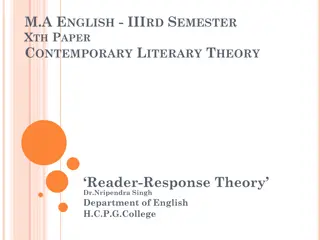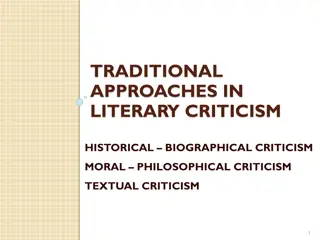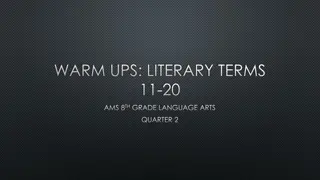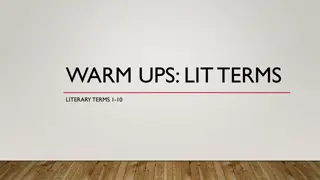Insights into Chicken Soup for the Soul: A Literary Exploration
Delve into the world of Chicken Soup for the Soul, a beloved series that began in 1993, founded by Jack Canfield and Mark Victor Hansen. Discover the essence of memoir and autobiography as portrayed in this collection that has touched millions worldwide. Explore the impact of these heartwarming stories and learn how to analyze literary works effectively.
Download Presentation

Please find below an Image/Link to download the presentation.
The content on the website is provided AS IS for your information and personal use only. It may not be sold, licensed, or shared on other websites without obtaining consent from the author. Download presentation by click this link. If you encounter any issues during the download, it is possible that the publisher has removed the file from their server.
E N D
Presentation Transcript
Unit 5 Non-fiction: Chicken Soup for Soul, Memoir and Auto- Biography 1553303 English Prose Aj Nareema Sangwiman, Ph.D Faculty of Humanities and Social Sciences Nakhon Pathom Rajabhat University
Scope of unit < Literary terms and vocabulary < Definitions of Chicken Soup for Soul, memoir and auto- biography < Recommended reading < Unit summary < Comprehension questions
Learning Objective After studying this unit, the students will be able to Identify form of literary works correctly. Apply literary elements to analyze selected text. Apply literary theory to evaluate and interpret author s messages critically.
Literary term and vocabulary Adventure (pronounced ad-ven-cher) was originally a Middle English word derived from the Old French aventure meaning destiny, fate, or chance event. An argument is a work of persuasion. You use it to convince others to agree with your claim or viewpoint when they have doubts or disagree. Coherence describes the way anything, such as an argument (or part of an argument) hangs together.
Chicken soup stories A story teller
Chicken soup stories Chicken Soup for the Soul was released on June 28, 1993, and became a holiday favorite by the end of December.
Chicken soup stories Chicken Soup For the Soul began in 1993 by motivational speakers, Jack Canfield and Mark Victor Hansen
Chicken soup stories It all began in 1993 with the original Chicken Soup for the Soul anthology, and today, there are more than 250 titles in the Chicken Soup collection on topics including parenting, pets, faith, food and body confidence.
Chicken soup stories Chicken Soup for the Soul books have been published in more than 100 countries and translated into 43 languages, according to the brand s website. More than 500 million copies have sold worldwide.
Chicken soup stories Chicken Soup editor-in-chief Amy Newmarkhosts a podcast featuring inspiring stories and life advice from everyday people.
Memoir An account of somebody s life. It comes from the French word m moire, which means memory, or reminiscence. It is a story with a proper narrative shape, focus, and subject matter, involving reflection on some particular event or place.
Memoir Memoirs are often associated with popular personalities, such as celebrities, sportsmen, soldiers, singers, and writers. It allows making a connection with what the audience finds captivating, interesting, appealing, and engaging.
Memoirand Autobiography Memoir falls under the category of autobiography, but is used as its sub-genre. The major difference between memoir and autobiography is that a memoir is a centralized and more specific storytelling, while an autobiography spans the entire life of a person with intricate details such as the childhood, family history, education, and profession. A memoir is specific and focused, telling the story of somebody s life, focusing on an important event that occurred at a specific time and place.
Memoirand Autobiography Both autobiography and memoir are about the author's life, but autobiographies are usually chronological accounts from birth to the present, while memoirs focus on a narrower period of time.
Recommended reading Memoir
THE PIGMAN & ME(Paul Zindel) Life does that to us a lot . Just when we think something awful is going to happen one way, it throws you a curve and something awful happen one way. To hook a reader by quote.
THE PIGMAN & ME(Paul Zindel) conflict Needs Choices Needs Paul wants to avoid a fight He also wants to prove he is not afraid. Choices
THE PIGMAN & ME(Paul Zindel) John Quinn Nonno Frankie Characters Paul There was a crowd of about 300 kids John Quinn standing at the center bend glaring at me. Rising Action "Hey, there's no need to fight! You don't have to fight, guys! But John came in for the kill. He was close enough now so any punch he threw could hit me. Climax
Look for your choices, pick the best one, and then go with it. Theme Resolution Ending If any of you tries to hurt my brother again, I'll rip your guts out, she announced. Resolution &Ending Theme/ moral Needs and choice, relationship Friendship/ kinship
In conclusion Reader Response to Psychoanalytic criticism READER + READING SITUATION + TEXT = MEANING
Critical Len: Reader Response Tyson explains that "...reader-response theorists share two beliefs: 1) The role of the reader. 2) Readers create meaning they find in literature.
Critical Len: Psychoanalytic It focuses on the hidden motivations of literary characters. It looks at literary characters as a reflection of the writer.
Assignments Read the chicken soup story Pigman & Me in your course book then answer the following questions: 1. Who is the main character in the story? 2. Who is John Quinn? 3. What conflict occurs in this story? 4. What are his inspiration to write this story? 5. What does memoir mean? 6. What are the function of memoir to present the writer s idea?
Assignments 7. How does the story end? 8. How does the resolution present in the end of the story? 9. How do you summarize the essential idea from the story? 10. Generate your idea about this passage When trouble came to you, it didn t involve anybody you thought it would. It involved everyone. Life does that to us a lot. Just when we think something awful is going to happen one way, it throws you a curve and something awful happens another ways
hank hank you you
